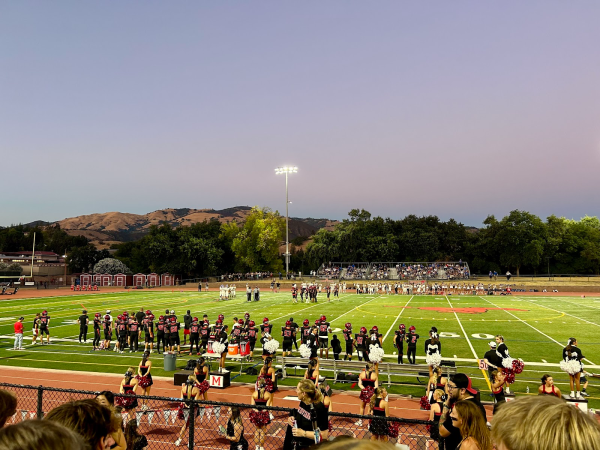2022 FIFA World Cup Qatar: A Major Controversy

An illustration by Pascal Kirchmair depicts what is truly occuring in Qatar today. While the country is preparing to host one of the world’s most popular sporting events, the horrors that are present in the country are being completely overlooked.
The World Cup, known as the biggest soccer tournament in the world, has seen over a billion fans observing from all over the world in years past. Every four years, hopeful fans worldwide tune in to see if their country can take home the cup.
With the 2022 Federation Internationale de Football Association (FIFA) World Cup scheduled to begin in November, most soccer fans are excited, still only some know the reality of Qatar. Qatar, a small Middle Eastern country not known to most, has a reputation for their homophobia, human rights issues, and recently a bribery scandal.
Controversies in Qatar: Selection Process
The issue of bribery has been in soccer for a long time. William F. Sweeney, an assistant director in charge of the FBI’s New York field office, has long been aware of this.
“The profiteering and bribery in international soccer has been deep-seated and commonly known practices for decades,” Sweeney said.
Of the twenty-four eligible voters that had a say in the 2022 World Cup selection process, ten have either pleaded guilty, indicted, or were banned from the sport on bribery and fraud charges.
In 2011, a whistleblower leaked emails between Qatar government officials and the African Confederation President and Vice President. A total of 1.5 million dollars was given between the President and Vice President in exchange for their vote to be for Qatar. Later in 2011, an email by FIFA General Secretary Jerome Vlacke said that Qatar “bought the world cup.”
Controversies in Qatar: Human Rights Issues
Not only was Qatar’s bid filled with corruption, human rights issues have also been on the forefront in the lead up to the World Cup. Maqwell, a Youtuber with 48.5 thousand subscribers made a video titled “The Disgraces of World Cup Qatar 2022”. The video described the human rights issues in the country and received close to 100,000 views. He describes Qatar as lacking enforcement of its worker protection laws, as a result, the death rates during the construction of this event has been high. Approximately 15,000 workers have died in Qatar since the groundbreaking of the first stadium. Kamal, a scaffolder for the stadiums, voiced his opinion on the conditions.
“I am fed up with this place. The work is hard, our camp is filthy, small, and I haven’t received any pay yet,” Kamal said.
Ninety-five percent of Qatar’s labor force is immigrants. Their visas, which grant them access to the country, are usually sponsored by their employers. The employers promised workers high wages and decent living conditions, but none of these promises have come true. Shaim, a gardener for the stadiums, is a victim of the employers’ method.
“I remember my first day in Qatar. Almost the very first thing an agent working for my company did was take my passport. I have not seen it since,” Shaim said.
Due to Qatar’s hot summers, the World Cup was moved from the summer to winter. With temperatures reaching as high as one hundred twenty two degrees Fahrenheit, workers are forced to labor in the sun with no days off. According to Maqwell, if they, “don’t work, their salary will be cut for the rest of the week.”
Controversies in Qatar: Homophobic Issues
Qatar, no different than most Middle Eastern countries, has had issues regarding the LGBTQ+ community. Being part of the LGBTQ+ community in Qatar is deemed illegal and heavily penalized, the worst case being the death penalty. Former FIFA President Sepp Blatter is aware of the situation in Qatar.
“I would say [the LGTBQ+] should refrain from any sexual activities,” Blatter said. “We [FIFA] don’t want any discrimination. What we want to do is open this game to everybody, and to open it to all cultures, and this is what we are doing in 2022.”
Blatter acknowledges the struggle currently occurring in Qatar. He acknowledges the issue, but still supports the country economically by making it the host country of the World Cup.
Another conflict has to do with the question of rainbow flags. Will Qatar allow the flags to fly in stadiums? 2022 World Cup chief executive Nasser Al-Khater responded to this question.
“When it comes to the rainbow flags in the stadiums, FIFA have their own guidelines. [Qatar] has their rules and regulations and whatever they may be, we will respect them,” Al-Khater said.
US decision:
It’s been a long time since the USMNT (United States Men’s National Team) has seen success in the tournament. The USMNT hasn’t played in a World Cup game since 2014 and if the team qualifies and doesn’t decide to go, the backlash from fans who have been waiting for another shot in the World Cup will not be happy. Pride is another aspect of the decision that must be taken into account. Players get to represent their country on the biggest stage.
If the team decides not to go, it could be a monumental moment to lead by example. The last time a boycott occurred was when thirty-one African Nations boycotted the World Cup, due to objections to the number of guaranteed placings at the finals. While the idea of a boycotts’ are rumored, current FIFA President Gianni Infantino is still optimistic about Qatar hosting the FIFA 2022 World Cup.
“The world will discover Qatar and that is what football is about – to bring people together,” Infantino said.

Devin Blish is beginning his fourth and last year in the Journalism program and is a senior at Monte...

Matthew Fehr is entering his senior year at Monte Vista and his third year on The Stampede. This year,...






